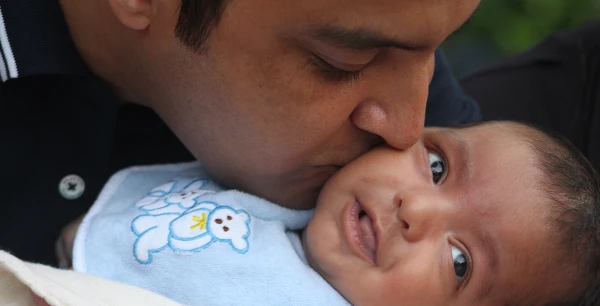I encourage you to visit Joanna at http://www.blissfulbabysleepcoaching.com or on Facebook for more tips, resources, and information on sleep coaching.
As a sleep coach, I’ve worked with over 500 families and had many intimate discussions. One big challenge that comes up over and over again is that parents make a “reactionary” attempt at sleep training without properly researching and agreeing upon the appropriate sleep training methodology to use with their child.
Often, parents are so frustrated and so exhausted that they make a desperate and rash decision to start sleeping training without ANY preparation or consideration of methodology. This “reactionary rush” often leads to tears on the part of both child and parent.
Because sleep coaching a child is one of the first big parental decisions, it is advised that parents take time to educate themselves on sleep science and to research their options before making any attempts to sleep train their child that is 6 months of age or older (It is not advised to use sleep training methodologies on a Newborn (age 0-6 months).
Allow me to put it all into perspective. Going to sleep independently and peacefully—and staying asleep—is, in fact, a learned skill. Like learning to sit up, crawl, or walk, self-settling and self-soothing are life skills to be practiced and mastered. Parents succeed in sleep coaching when they find a methodology to match their values as well as their child’s temperament.
Methods
For children six months to five years of age, there are several sleep coaching methodologies parents can choose to follow. In each approach, the goal is to instill positive sleep associations to replace current sleep crutches as well as teach those new skills of self-settling and self-soothing to sleep. The common methodologies are:
- Extinction (also known as “cry it out”)
- Controlled Crying (also known as modified extinction or timed checks or “Ferberizing”)
- Fading (also known as “the chair” or “The Sleep Lady Shuffle”)
These methodologies differ dramatically in approach, particularly regarding the amount of parental involvement, such as the extent of parental verbal assurances and physical contact. Before starting any sleep coaching process, it’s essential to visit your pediatrician to confirm there are no underlying medical conditions causing the sleep disturbances and to receive approval that sleep coaching is appropriate for your child’s age and development (typically not recommended for babies under 6 months of age).
Also, if your child is breastfeeding, there needs to be much care and consideration given in the sleep plan to honor the breastfeeding relationship and nursing plan.

Step-by-step plan
Parents can educate themselves by reading and following sleep plans in sleep-training books.
However, in most cases, in order to eliminate confusion and self-doubt and to establish confidence, parents may seek individualized guidance from a trained and certified pediatric sleep consultant/sleep coach.
In either case:
- The first step is to choose a methodology that meets family values and takes into consideration the child’s temperament.
- The second step is to get approval from the pediatrician
- The third step is to create and implement a detailed sleep plan based on the preferred methodology.
- The last step is to implement the sleep plan consistently for 2-3 weeks to optimize results.
Patience and consistency yield great results
Remember, your child is learning a new skill set of self-settling and self-soothing—and learning new skills take time and practice. When practiced at the right time, under the right circumstances, and with a consistent approach, you’ll likely achieve success in 10-21 days, depending on the child’s age and temperament.
If a parent doesn’t see any improvement within 7-10 days in the child’s ability to self-settle and self-soothe at bedtime and then during the middle of the night, than it is best to put a “pause” on sleep training and do some further research and consideration. There could be an underlying medical condition inhibiting progress—so definitely visit and discuss with the pediatrician.
Once parents have eliminated any medical concerns, then the next step would be to reach out to a trained and certified sleep coach. Pediatric sleep consultants can further assist you in creating a customized sleep plan that works for your child, and a trained and certified coach will “hold your hand” while you are implementing the sleep plan so that you will finally achieve peaceful nights.
So please, an important parental journey tip is to slow down and don’t expect a “magic bullet” solution without proper preparation. Please take the time and consideration to do your research and pick a methodology and devise a sleep plan and set yourself up for success to minimize tears and frustration for all involved.>
Visit Joanna Clark at her website: http://www.blissfulbabysleepcoaching.com/ or Facebook: https://www.facebook.com/blissfulbabysleep/at for more tips, resources, and information on sleep coaching.




